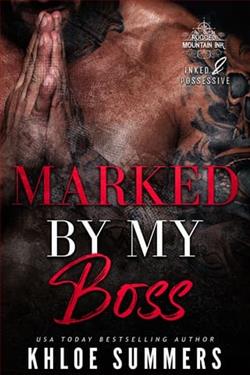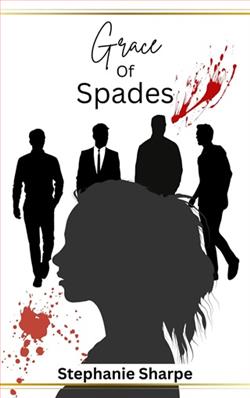Page 32 of Thick and Thin
“I know it’s only been a week, but it seems like you’ve been gone so much longer.”
“It does.”
“How is your father doing?”
“Better. He was in bad shape when I got there. I could tell he’d been getting worse and worse, barely able to take care of himself. So I cleaned the house, did the laundry, went shopping, and fed him. But the kicker was getting him to his treatment.”
Edna peeked in the oven as she asked, “What kind of treatment is it?”
“I don’t know how much I’ve told you about my father, but he was diagnosed with Multiple Sclerosis when I was in my teens—but he’d been struggling with the symptoms for a few years before that. Anyway, it was manageable at first and didn’t disrupt too much of his daily life, but as the years went on, it got worse—and the past two years have really taken their toll. He has to use a walker most days and he just can’t enjoy life like he used to. It’s heartbreaking.”
“I had a cousin back east who got it. I didn’t know her well but saw her once in a while at family reunions. The last time I saw her, she was in a wheelchair. But she passed away last year—caught COVID and that was that.”
“How sad.” I was grateful my father had managed to avoid catching COVID, and he’d been one of the first to get vaccinated just in case.
“It was—but I do know she loved life. She taught literature classes at one of those Ivy League schools up until the end, and they said at her funeral that she was well-loved by students and faculty alike. You can’t ask much more out of life than to love and be loved.”
I dwelled on her last few words for far too long, but in them was wisdom of the ages—and, mingled with my father’s rendition of Tennyson’s view of how losing love was preferable to never experiencing it at all, made me think maybe it was okay that Sinclair and I would never be able to be together. At least we would always have had our moments in time where our love burned bright.
Or, at least, mine had. I sometimes wondered if Sinclair could feel that emotion—or, at least, if he’d felt it the same way I did.
When Edna pulled out her favorite bowls, ones with handles, from the cabinet, I asked, “Can I help with anything?”
“Get yourself something to drink—and go ahead and pull the butter out of the fridge and put it on the table. I made those crusty rolls you like.”
That was but one reminder that this woman definitely made this place feel like a home away from home.
As I opened the refrigerator door, Edna said, “You were telling me about your father—that he’d had some kind of treatment while you were there.”
“He did. It’s an infusion. His doctor recommended it and he was referred to a clinic in Colorado Springs that does it, but they were so booked up that he was scheduled three months out—so we’ve known about this appointment for a while. The clinic recommended someone come with him for at least the first treatment because of the side effects and especially not knowing how the body will react.”
“Makes sense,” Edna said, spooning something from the pot into the bowls.
“That smells good.”
“It’s something I call meatball stew. I’d never make it for Mr. Sinclair but I suspected you might appreciate it. I like to have it at least once every autumn and if you help me eat it, I won’t have to freeze any of it—if you like it, that is.”
“Based on the way it smells, I have no doubt.”
Edna handed me a basket of warm rolls. “Please put those on the table—and set the silverware if you could.”
Nodding, I did as she asked and continued my story. “At first, after the infusion, I thought it was either going to be a bust or that it was making him far worse. But yesterday it was like they’d wound back the clock—so he felt like he had five years ago. In fact, I had to remind him several times not to overdo it. He feels so good that he wants to catch up on projects he hasn’t touched in years.”
“That sounds promising.”
“It is. He has his second infusion scheduled for a week from Thursday and I’ll be going down for that as well.”
“How often does he have to go for that?”
“If I understand correctly,” I said, placing the silverware on the table, “after that, he only has to go twice a year.”
“And he’ll continue feeling better?”
“That’s what they say.”
“The things they come up with.”
Soon, Edna and I were seated at the table—and her stew was amazing. It was a great way to ease me back into life at the mansion with a little taste of home. “I know my dad would love this stew.”















